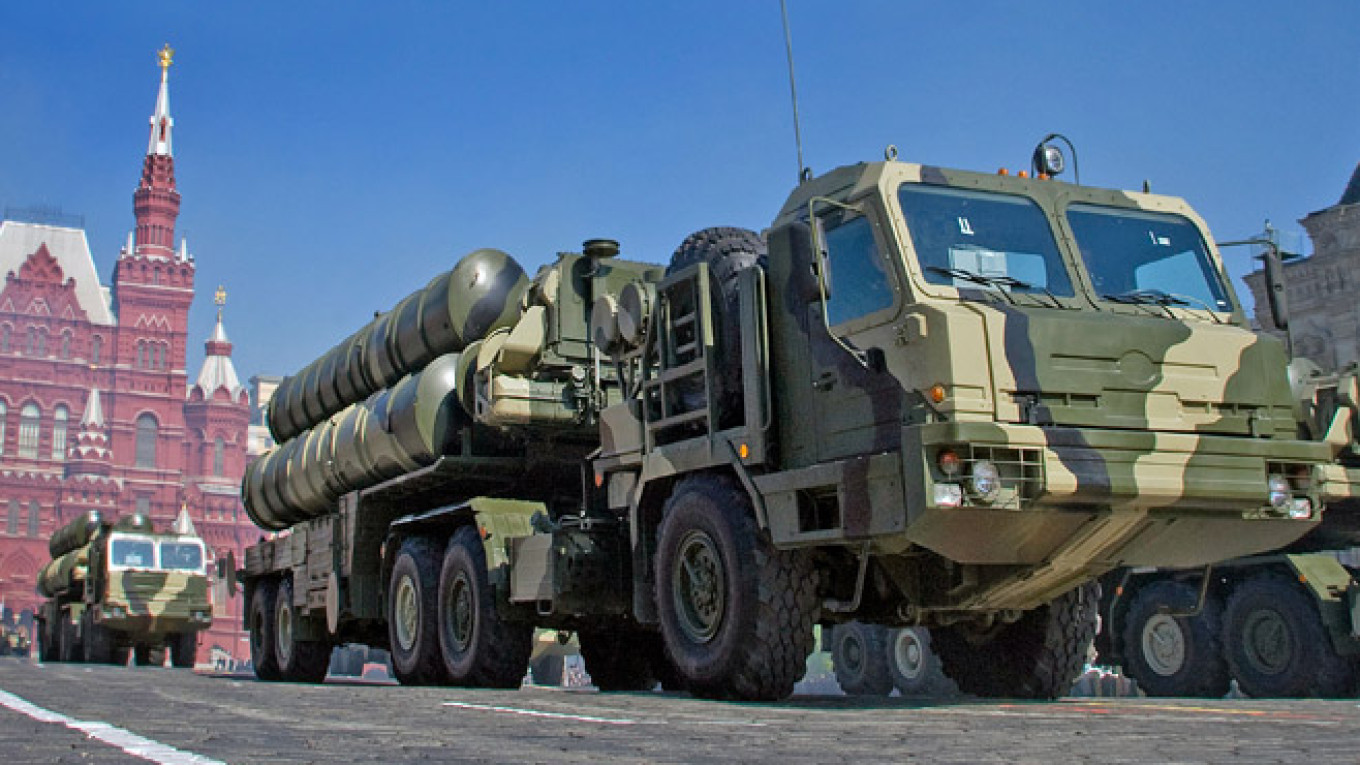Russia is in the process of selling cutting-edge S-400 anti-aircraft missile systems to China, which would hand Beijing a defense system capable of deterring even the most advanced air powers from infringing on Chinese airspace, the Vedomosti newspaper reported Wednesday.
China this fall signed an agreement with Russia's arms export agency, Rosoboronexport, that calls for the delivery of at least six divisions of the S-400 system costing over $3 billion, the paper said citing unidentified Defense Ministry and industry officials.
See also: Factbox: Russia's S-400 Air-Defense Missile System
The report comes a week after Russian Defense Minister Sergei Shoigu on a visit to Beijing agreed to deepen military-industrial ties and hold more joint naval exercises with China.
The Moscow Times was unable to receive confirmation from Rosoboronexport that a contract has been signed, but a representative of another government agency involved in defense exports, the Federal Service for Military-Technical Cooperation, told the RIA Novosti news agency the contract had not yet been finalized.
The S-400, a next-generation air defense system originally designed to counter the increasing air power of the U.S., can strike F-35 stealth fighters and shoot down ballistic missiles.
Built by Russia's largest defense contractor Almaz-Antey, primarily for use by the Russian military but also for export, the system provides a coverage of up to 400 kilometers and an altitude of 30 kilometers, and is ideal for defending cities, military bases and sensitive facilities from enemy aircraft, according to Russian media reports.
Armed with three types of missiles suited for short-, medium- and long-range intercepts with aerial targets, a single S-400 battery can engage up to 36 targets with 72 missiles simultaneously.
The S-400's ability to deter well-equipped foreign aggressors has earned both it and its predecessor, the S-300, high demand among nations that do not consider themselves to be U.S. allies.
China appears to be particularly interested. It already has Russian-made S-300s, and is licensed to produce its own versions of that system. But the defensive capabilities and wider range of the S-400 give it superiority over anything else that Chinese industry can field at the moment, which is limited to about 200 kilometers.
In modern warfare, domination of the sky is perhaps the single most important factor in achieving victory over an enemy. A system such as the S-400 would make it very difficult for an invading power to advance without diverting time, energy and resources to destroying these defenses.
The S-300 was a huge export success for Russia, and the S-400 has garnered interest from India, Algeria and Vietnam as well as China. These four are Russia's primary arms customers, accounting for over 60 percent of its annual exports, according to data from the Stockholm International Peace Research Institute.
Moscow has however run into problems with its anti-aircraft missile system sales. The United Nations pressured Russia to halt an $800 million purchase of five S-300 systems by Iran in 2010 and a similar sale to Bashar Assad's regime in Syria, but Russia is holding of on completing the deal after the international body placed sanctions on Damascus last year.
Had Russia gone through with the deliveries, Iran and Syria would be much less vulnerable to intervention by foreign powers.
Contact the author at [email protected]
A Message from The Moscow Times:
Dear readers,
We are facing unprecedented challenges. Russia's Prosecutor General's Office has designated The Moscow Times as an "undesirable" organization, criminalizing our work and putting our staff at risk of prosecution. This follows our earlier unjust labeling as a "foreign agent."
These actions are direct attempts to silence independent journalism in Russia. The authorities claim our work "discredits the decisions of the Russian leadership." We see things differently: we strive to provide accurate, unbiased reporting on Russia.
We, the journalists of The Moscow Times, refuse to be silenced. But to continue our work, we need your help.
Your support, no matter how small, makes a world of difference. If you can, please support us monthly starting from just $2. It's quick to set up, and every contribution makes a significant impact.
By supporting The Moscow Times, you're defending open, independent journalism in the face of repression. Thank you for standing with us.
Remind me later.


